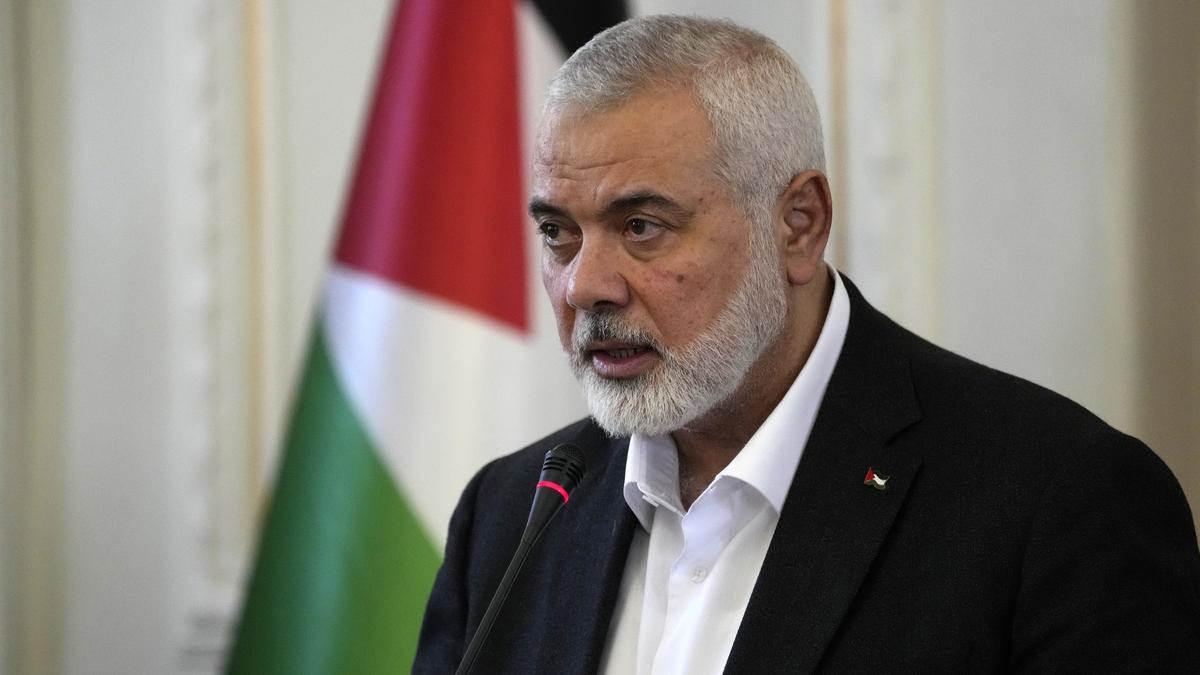 |
|
The death of Ismael Haniyeh, the political head of Hamas, in Tehran has thrown India into a delicate diplomatic situation. Despite the high-profile nature of the incident and the presence of Indian officials in Iran during the events leading up to Haniyeh's death, India has maintained a studied silence. This cautious approach likely stems from India's complex relationship with both Iran and Israel, two key players in the West Asian region, and the absence of concrete information from Iranian authorities regarding the circumstances of Haniyeh's demise.
Haniyeh's death occurred just hours after he attended the swearing-in ceremony of the new Iranian president, Dr. Masoud Pezeshkian. The ceremony was attended by international dignitaries, including India's Minister of Road Transport and Highways, Nitin Gadkari. The presence of figures from Hamas, Hezbollah, the Houthis, and Islamic Jihad alongside Indian officials has raised security concerns, but the Indian government has maintained that the guests were invited by Iran and thus posed no threat to Indian interests. However, the incident has highlighted the intricate web of alliances and rivalries that India must navigate in West Asia, particularly in the context of the ongoing conflict in Gaza.
India's position in the West Asian region is characterized by a delicate balancing act. Following the October 7th attack by Hamas on Israel, India was one of the first countries to condemn the violence, labelling it a 'terror attack'. However, India has refrained from officially designating Hamas as a terrorist organization, a decision that has drawn criticism from Israel. The Israeli ambassador to India, Naor Gilon, had urged India to take this step. Yet, India has reiterated its commitment to a two-state solution for the Israeli-Palestinian conflict, a stance that seeks to maintain its relationship with both parties involved. The death of Haniyeh further complicates this already precarious situation, underscoring the challenges India faces in maintaining a neutral stance in a region fraught with tensions.
The events in Tehran have also underscored the international security challenges facing Iran. The attack, which occurred in a high-security area in the capital, has led to widespread fear and anxiety within the country. The Iranian government has responded with three days of national mourning and a restriction on mobile internet access, further amplifying the sense of unease. While the focus remains on the political implications of Haniyeh's death, the new Iranian government is also facing pressing economic issues that may take precedence over the security situation.
The incident has brought to the forefront the complexities of India's position in West Asia. The country's relationship with Iran, a crucial energy supplier, must be balanced with its close ties to Israel. The conflict in Gaza, a seemingly intractable issue, adds another layer of complexity. India's cautious response to Haniyeh's death is a reflection of the delicate dance it must perform in this volatile region. The immediate future will likely see India continuing to navigate this challenging landscape, seeking to maintain its strategic interests while avoiding being drawn into the region's deep-seated conflicts.
